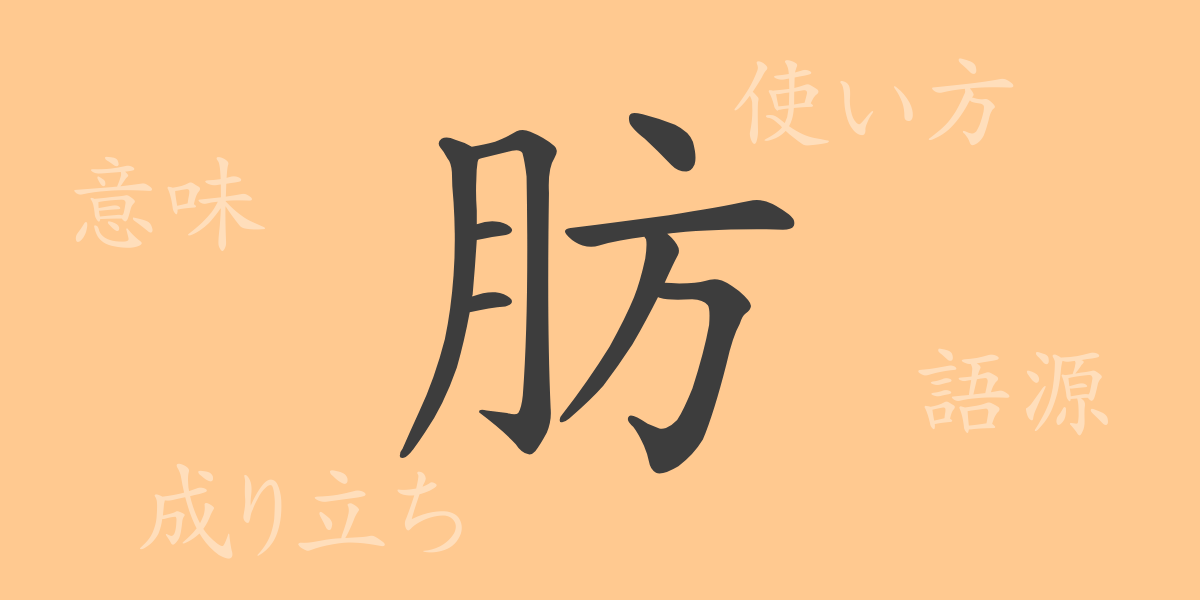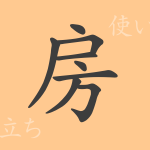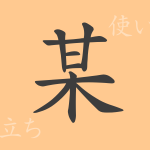Japanese character culture is deep, and at its core are kanji (Chinese characters). From those commonly seen in daily life to those used only in specialized fields, kanji (Chinese characters) cover a wide range. This time, we focus on the character “肪” (bō), delving into its history, meaning, usage, and its role in the Japanese language. Through this article, let’s explore the rich world that the character “肪” (bō) holds together.
The Origin of 肪 (bō)
The kanji (Chinese character) “肪” (bō) was born in ancient China. Its formation combines the radical for meat “肉” (niku) with the radical for fire “火” (hi). This is thought to depict the process of roasting meat and melting fat. In this way, “肪” (bō) came to mean fat or grease.
Meaning and Usage of 肪 (bō)
In modern Japanese, “肪” (bō) is mainly used to refer to fat. It is frequently seen in medical terminology and food-related fields, often used in specialized terms such as fat cells and fatty acids. Although it is not commonly used in everyday conversation, it may appear in discussions related to health and nutrition.
Reading, Stroke Count, and Radical of 肪 (bō)
Let’s take a closer look at the reading and structure of the kanji (Chinese character) “肪” (bō).
- Reading: In on’yomi (Chinese reading), it is read as “bō.” There is no kun’yomi (Japanese reading).
- Stroke count: The character “肪” (bō) has a total of 12 strokes.
- Radical: The radical is “肉” (niku), which is often used in kanji (Chinese characters) related to the body or food.
Compounds, Idioms, and Proverbs Using 肪 (bō)
There are not many compounds or expressions that include “肪” (bō), but here are a few examples.
- 脂肪肪 (shishōbō): Refers to having a lot of fat or a person with a lot of fat.
- 肪溶性 (bōyōsei): Refers to a property of being easily soluble in fat. Used in chemistry and nutrition.
These compounds and idioms are mainly used in specialized contexts.
Summary of 肪 (bō)
The kanji (Chinese character) “肪” (bō) evokes fat or grease from its shape and origin. It plays an important role in fields such as medicine and nutrition, and is used in specialized compounds. While it may not be frequently seen in daily life, there is no doubt that it is a kanji (Chinese character) deeply related to our health and diet. Through this article, we hope you have gained a deeper understanding of the character “肪” (bō) and its diverse meanings.

























